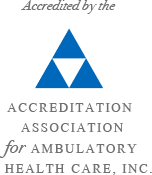Why You May Need a Colonoscopy
 A colonoscopy is a common procedure to examine the colon. Typically, people associate colonoscopy with those over a certain age. Still, the screening and diagnostic tool can help many, regardless of age.
A colonoscopy is a common procedure to examine the colon. Typically, people associate colonoscopy with those over a certain age. Still, the screening and diagnostic tool can help many, regardless of age.
Learn what factors can influence your need for a colonoscopy and, if you need one, how to schedule the procedure.
What Can a Colonoscopy Help With?
Routine colonoscopies are commonly done every ten years, starting at 45. While nearly all people are recommended to undergo this screening for rectal cancer, there are many more reasons and many people who can benefit from undergoing a colonoscopy.
Along with cancer screening, a colonoscopy can also help identify the causes of intestinal issues, abdominal pains, and other gastrointestinal ailments.
A colonoscopy can also be utilized not just during diagnosis but also during treatment. To remove a blockage or place a stent to aid with a blockage, colonoscopies can help address intestinal issues caused by injury, illness, or postoperative complications.
What Signs Indicate You Need a Colonoscopy?
While your doctor will be the one to order a colonoscopy, you can look out for these signs to help bring it to their attention:
- Disruptions to regular bowel movements
- Rectal bleeding
- Blood in stool
- Abdominal pain
- Persistent bloating
- Unexplainable weight loss
- Fatigue or shortness of breath
While these signs are common reasons to have a colonoscopy performed, it is not an exhaustive list. If you’ve been facing irregularity or abdominal and gastrointestinal pain, be sure to speak with your doctor.
What to Know About Getting a Colonoscopy
If you find that you need the procedure, you may have questions. A colonoscopy requires preparation. A laxative regimen, which helps the doctor observe the colon more clearly, is typically required.
An anesthetic is used during the approximately 30-minute procedure, with time varying depending on the scope and complexity of your colonoscopy. During the procedure, polyps, small clumps of cells that can grow on the colon's lining, may be removed, as well as tissue taken for a biopsy.
Expect to have someone there to help drive you home after the procedure.
Have Your Colonoscopy at Gramercy Park Digestive Disease Center in New York, NY
At the Gramercy Park Digestive Disease Center, we are home to top board-certified gastroenterologists who are capable and eager to help you find the relief you need.
If you want to learn more about colonoscopies and would like to schedule an appointment, please submit a request online or contact the center at 212-979-3237.


